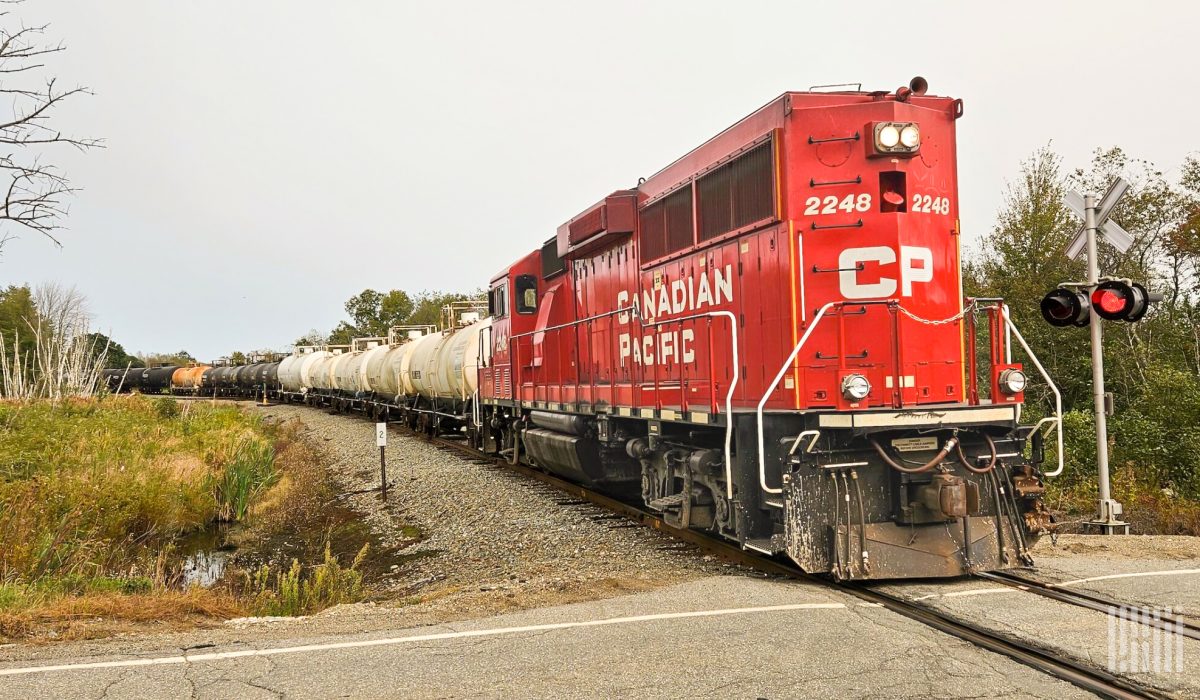Canadian railroads in historic network shutdown
Canada’s largest railroads, Canadian National and Canadian Pacific Kansas City, both said they had formally locked out union rail employees at 12:01 a.m. Eastern time Thursday in an unprecedented shutdown of the country’s largest rail networks.
CN said the lockout came after the union did not respond to its final contract offer in an attempt to avoid a labor disruption.
There was no immediate response from the TCRC, which had set an identical strike deadline if negotiations failed to reach agreement on a new pact.
The contract dispute covers a combined 9,300 union employees ranging from train crews to dispatchers at Canadian National (CN) and Canadian Pacific Kansas City (CPKC), the country’s largest railroads. Employees represented by the Teamsters Canada Rail Conference (TCRC) are seeking higher pay and improved benefits, as well as provisions for more predictable work scheduling, similar to recent deals at U.S. railroads. Negotiations typically take place every other year; a one-year extension of the previous pact expired at the end of 2023.
In other developments:
- Prime Minister Justin Trudeau on Wednesday called on the sides to reach an agreement. “My message is straightforward. It is in the best interest of both sides to continue doing the hard work at the table to find a negotiated resolution,” Trudeau said during brief remarks reported by the CBC.
- CEO James Vena of Union Pacific, the largest U.S. railroad, in a letter to Labor Minister Steve MacKinnon urged the minister to intervene in the labor dispute, warning that disruption of rail service would have “devastating consequences” for the U.S. and Canadian economies. UP in a statement said it moves 2,500 freight cars across the border each day, and that it is in close communication with CN and CPKC while working to minimize the impact on customers.
- Canadian business groups early Wednesday in a joint statement urged the government to intervene to keep trains moving. Trudeau has resisted such calls; the labor-aligned New Democratic Party, a key supporter of Trudeau’s liberal government, said it opposes any federal intervention in the negotiations. MacKinnon on Wednesday met separately with representatives of CPKC and the TCRC in Calgary where he urged the sides to come to an agreement. MacKinnon met Tuesday in Montreal with CN. Federal mediators are guiding bargaining on a new contract.
- CN issued an embargo of all freight effective at 12:01 a.m. Thursday. It previously restricted refrigerated cargo as of Aug. 15. Canada-U.S. intermodal embargoes took effect Aug. 16 covering ports in New York, New Jersey and Pennsylvania; interchange with CSX and Norfolk Southern; and Canada-bound shipments out of Indianapolis.
- Sources told FreightWaves that CN so far had not disclosed any plans to U.S. workers on how it would handle the effects of a shutdown. Only train movements within yards, not intercity trains, would take place during a work stoppage. The company did not comment on its U.S. plans.
- As of Tuesday, CPKC embargoed all shipments originating in Canada, all shipments originating in the United States destined for Canada and all carload traffic destined for Canadian interchange. The company is communicating directly with customers as additional embargoes and intermodal terminal restrictions for temperature-controlled containers and other intermodal containers are implemented, as necessary.
- In an email to FreightWaves, a spokesman for CPKC said the carrier “remains focused on and committed to arriving at a negotiated outcome that is in the best interests of all our railroaders and their families. We are firmly committed to staying at the bargaining table to reach renewed agreements.”
- CSX has embargoed all cross-border shipments to and from CN and CPKC. Shipments on those roads with U.S. originations and destinations are not included in the embargo. Restrictions on all hazmat and security-sensitive materials originating or terminating on the Canadian railroads remain in effect.
- Norfolk Southern in a service alert said it is continuing to monitor the potential work stoppage. The embargoes by CN and CPKC cover all NS-originated traffic destined for Canada and all Canadian-originated traffic destined for NS destinations for all commodities.
- On Monday CPKC President and CEO Keith Creel in a letter to employees said union leadership “grossly misrepresented the facts regarding our ongoing collective bargaining and the proposals made by CPKC during these negotiations.” Creel described as “patently false” suggestions by the TCRC that CPKC had “unilaterally changed or canceled the terms” or that its proposals “would compromise safety.” He added that the railroad remains committed to negotiating a new agreement.
- Canada’s largest container gateway is taking measures to manage vessel arrivals and maintain port fluidity. Ships en route to the Port of Vancouver in British Columbia are being instructed to adjust their arrival times by slowing down to prevent further congestion. “We expect disruptions to the movement of containers, grain, potash, coal and other cargo transported to and from port terminals by rail,” a spokesman told FreightWaves.
- British Columbia’s Prince Rupert Port Authority in a statement to FreightWaves urged CN and TCRC to continue negotiating in good faith toward an agreement. “The pending labor disruption threatens the 3,300 direct full-time jobs that comprise port-related operations throughout northern BC as well as the movement of goods.”


